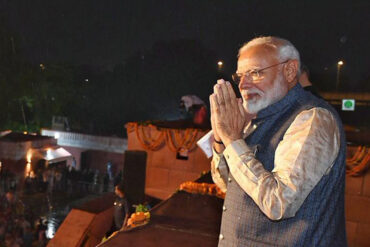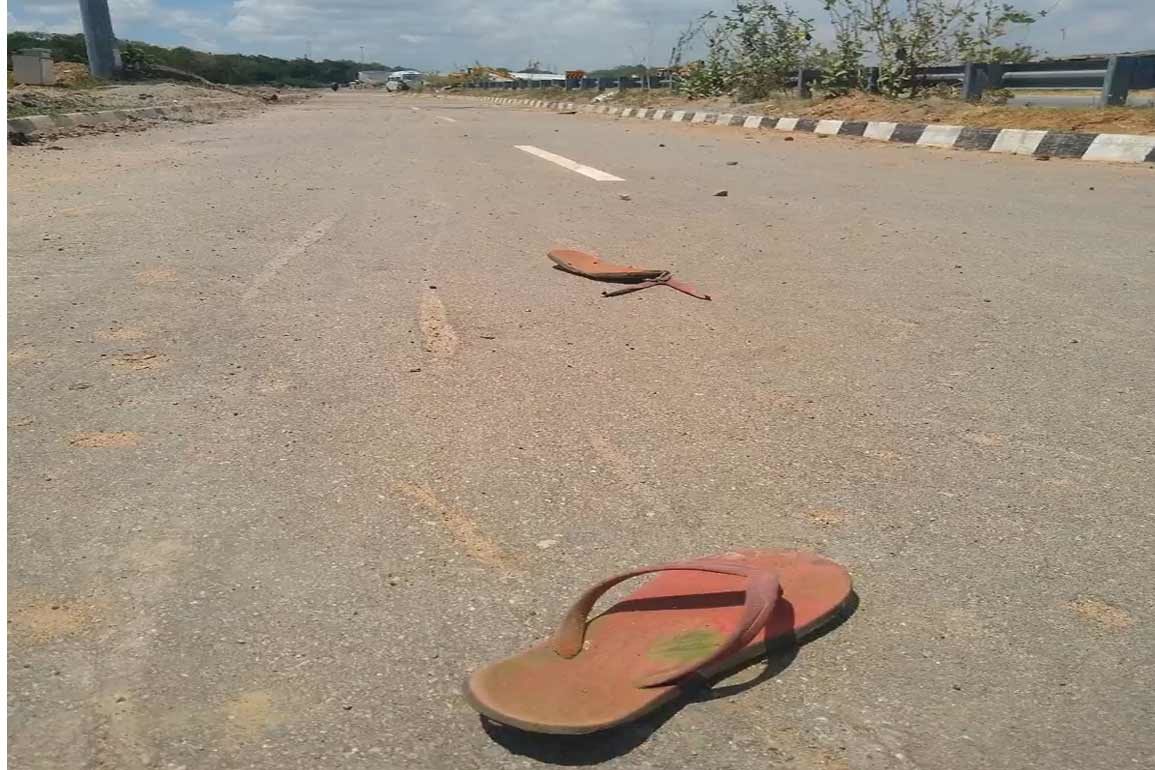It is widely recognized that ‘maintenance’ is a non-priority in Indian culture. Our roads and public facilities are in bad maintenance. Our institutions are. Our historical records are. Our economy is. This innate weakness in our way of life—our inability to care—shows itself up in so many ways, some of them quite hurtful.
It was when I was working in the field of HIV/AIDS pandemic that I became acutely aware of this. The early reactions to the infected were not only negative, but brutally violent. They were ostracized and, in many cases, their houses were attacked and set on fire. This alerted me to the fact that the failure to care is a serious matter and that it expresses itself as cruelty. The dynamics of human nature play out between the two poles of caring and cruelty. To fail to care is to dare to be cruel.
The other thing I learned while working on HIV/AIDS as relevant to our present theme is: caring is related to the worth of the person concerned. An infected person suddenly loses all worth. He or she suffers instant social death. It doesn’t make sense to bother about corpses. The sensible thing to do is to put them out of sight.
This response-mechanism does not arise, primarily, from hostility to the persons concerned. It issues from the instinct of self-preservation. The core of this instinct is the craving for personal security. The irony of this craving is that it activates insecurity. That is how it is, and the only way out of this—out of the oppression of insecurity—is to cultivate the strength of self-denial.
Recklessness is the grotesque obverse of self-denial. A terrorist, for example, is a dramatic embodiment of recklessness. He sets no store by his life, which he is willing to throw away to the very devil himself. Recklessness has the appearance of bravery, but it is so only deceptively. True bravery is related to the worth of life. It is for the sake of life that we need to be brave; not for the sake of death. The ‘bravery’ that is aligned to death is recklessness.
This brings us to the insight that caring, which is an aspect of bravery, is an aspect of life-orientation. Caring involves risks. A mother is instinctively braver than a knife-wielding street thug who intimidates those who are weaker than himself in body or mind. A mother is brave because she loves. Because she loves, she cares. Because she cares, she braves. Such life-oriented bravery and caring are hitched to the supreme value of life.
A lamentable weakness in our culture is the low worth we attach to life. Such value as we attach to human life is calibrated on class and caste. Life has no inherent worth. This has come to light in a tragic fashion during the lockdown. Tens and thousands of migrant workers were left high and dry. Contrary to public statements of sympathies, their plight was miserable, driving thousands of them to set out on foot to walk hundreds of kilometres, without any assured supply of food, water or shelter. Several of them perished; some out of exhaustion—as in the case of a twelve-year old girl who trekked nearly 140 kilometres from Telengana to her home in Chhattisgarh and died of exhaustion just 14 kms from home—and many due to accidents. During the same time, more privileged people were transported to their destinations.
The more colourful expression of the same malady is the VVIP syndrome. A handful of people hold the rest of city to ransom to slam down upon them the irksome weight of their self-importance. They dramatize their worth by inconveniencing citizens and underlining their insignificance. The handicap caused to citizens through, say, VVIP-movement serves only an invidious symbolic, ceremonial purpose. Those who derive all their worth from ‘the establishment’ need to show off their power; and they can do so only negatively by depriving others of their worth. This issue too has a bearing on the poverty of our caring culture.
There are economic aspects too to this syndrome. A welfare state is impossible without a caring culture that is established on principles of liberty, equality and fraternity: all of which are spiritual values that embrace the secular sphere as well. In societies that lack a genuine caring culture, wealth will accumulate in the hands of a few and the vast majority of people will be kept in deprivation. If they are not, they cannot be used as instruments to subserve the interests of the socio-economic elite. This is one of the reasons why child labour will not be abolished on the ground in India, though on paper it was abolished years ago.
Consider, for instance, how the ‘opportunities’—shudder to use this word in this context—afforded by the COVID-19 pandemic have been used vis-à-vis workers. In UP all protective provisions for ensuring bottom-line justice to workers are sought to be taken away. Imagine workers being made to work twelve hours a day. For what wages? What provision to meet the health hazards this entails? What is conspicuously absent from this scenario is the spirit of caring.
Yet there are glimmers of light as well. I have to make a mention here of SHO Shaijunath, in-charge of the Peroorkada police station. The moment he realized that I was living alone in Trivandrum—my wife being stranded in Kozhikode for five weeks due to the precipitous nightly imposition of the lock-down—he called on me. Volunteered to make arrangements for my food for as long as I wanted and assured that I could contact him for help in case of any emergency. For all the economic disabilities of Kerala, the state government, in its response to the present pandemic, has shown exemplary sensitivity to the human predicament. This is all the more evident in the way guest-workers were taken care of in Kerala, as compared to what other states have done.
So, can India develop a caring culture? Well, we should. To fail to do so is to remain stuck in the morass of under-development and social ill-health. I wish the present dispensation would realize that a caring culture is more fundamental to equitable economic development than FDI. What are we to do to nurture this important human resource?
I think we need to re-design our entire enterprise of education with a view to fostering a caring culture in children as future citizens. The present approach to, and practice of, education suppresses, rather than nurtures, the caring spirit in a variety of ways, the details of which need not be enumerated here. I would refer the readers incidentally to a Malayalam film titled Hundred and One Questions (Nooti-onnu Chodyangal). The script culminates in the child’s question, “Sir, why is it that I alone can’t cry?”
Secondly, we need to have a hard look at our religiosity, which breeds selfishness and self-absorption and, in the process, suppresses our caring spirit. Popular religiosity is all about sanctified covetousness, and rarely about compassion.
Thirdly, we must desist from valorising violence. We are in perverse admiration of cruelty. Why else would crime be the plume of our image of political leaders? Political parties issue tickets to aspirants with hard-core criminal records because they are sure to win! They win because their profiles appeal to the masses. The popular appeal of violence is taken advantage of with astronomical electoral gains in the form of attacking a putative enemy with shock and awe. Violence is, thus, the essence of our idea of patriotism. Those who applaud and patronize this outlook are a party, willy-nilly, to eroding the caring culture. We cannot switch between cruelty and caring at will. Either we are cruel, or we are caring. We can’t be both in a Jekyll-Hyde sort of way.
The value of compassion (karuna) was proclaimed most eloquently from the soil of India by Lord Buddha. Regrettably, that tradition was stamped out and a counter-paradigm was popularized under a religious garb. So we admire compassion when a few individuals like Mother Teresa or Baba Amte practise it. But we won’t practise it ourselves. We repose our faith in cruelty or in apathy. This needs to change. It can; provided we work at it and persevere to make it prevail. If a fraction of the investment we make on cruelty is invested in propagating the culture of compassion, we shall be a nobler, healthier and progressive nation.
Cover Image: Broken slippers left on the road by a migrant trudging home in the midst of a Covid-induced lockdown. Courtesy: Mazdoor Adhikar Sangharsh Abhiyan







